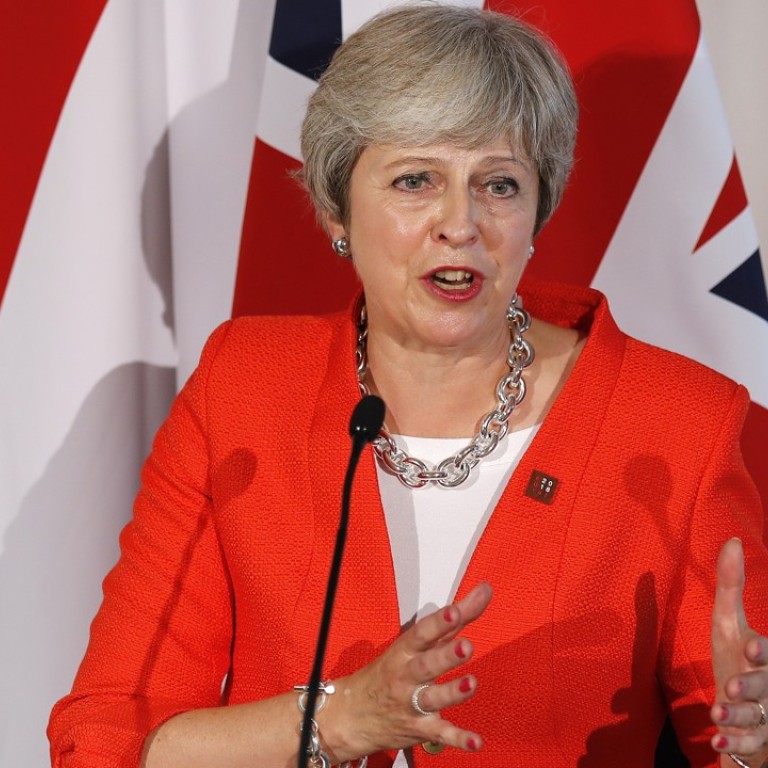
UK PM May demands ‘respect’ from EU after ‘humiliation’ at Austria talks
British media slam May and EU over ‘broken’ Brexit, as embattled leader runs out of time to strike a deal
Prime Minister Theresa May’s Brexit proposals were declared dead by the British media on Friday after what they cast as a humiliation at the hands of European Union leaders at an informal summit in Salzburg.
After a dinner of Wiener schnitzel in Salzburg, EU leaders said they will push for a Brexit deal next month but warned May that if she will not give ground on trade and the Irish border by November they are ready to cope with Britain crashing out.
For the British media, the message from the EU was clear.
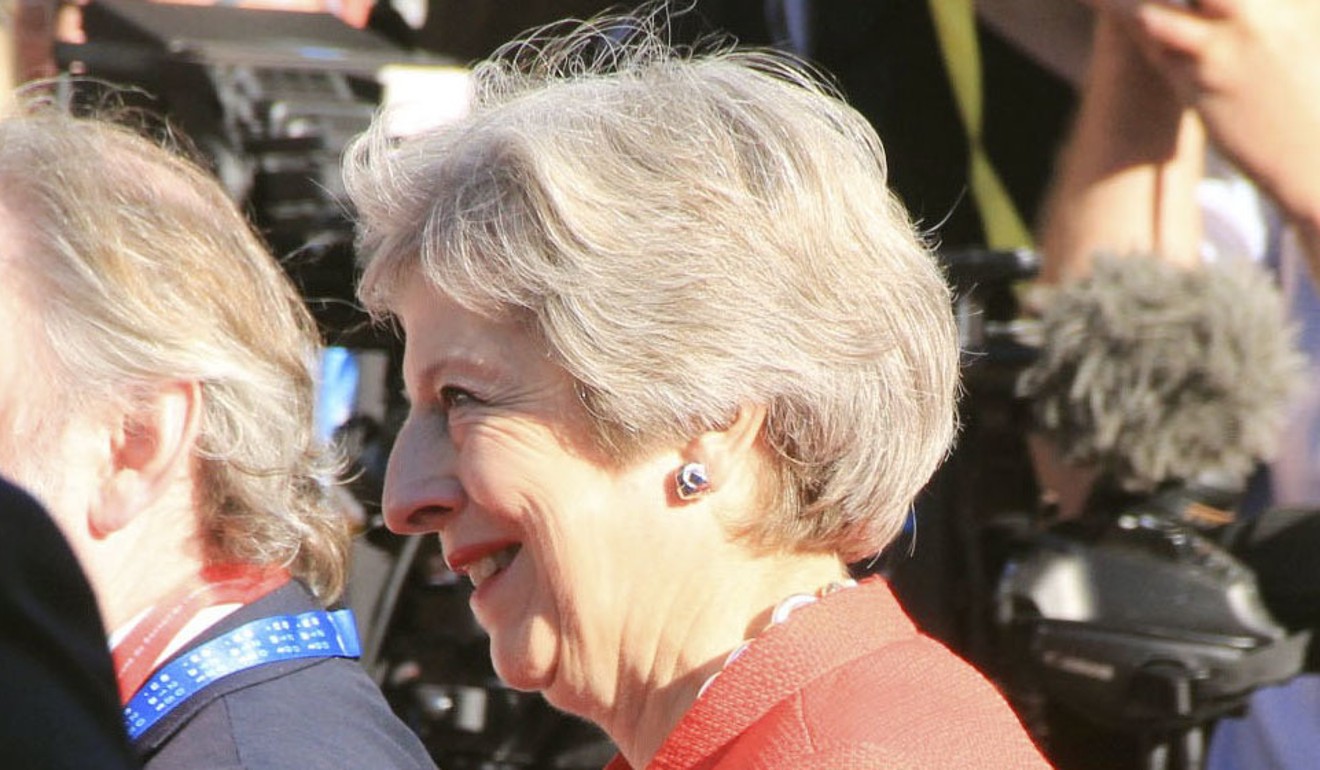
“Your Brexit’s broken,” the Daily Mirror newspaper said on its front page.
British newspapers led their front pages with picture of May, dressed in a red jacket, standing apparently aloof and alone from a mass of suited male EU leaders.
“May humiliated,” The Guardian newspaper said.
“Humiliation for May,” said The Times on its front page.
“May’s Salzburg hopes dashed as EU leaders reject Chequers deal,” said the Financial Times. The BBC said: “Embarrassing rebuff for PM in Salzburg.”
How a post-Brexit Britain can chart an independent future, free of the burdens of the EU
The Sun went much further: “EU Dirty Rats – Euro mobsters ambush May,” it said alongside a mock-up picture of French President Emmanuel Macron and European Council President Donald Tusk dressed as American gangsters with guns.
Macron bluntly said May’s Brexit proposals, known as Chequers after the country house where they were agreed by the British cabinet in July, were “unacceptable”.
Tusk posted a picture of him offering May a choice of delicate cakes beside a message: “Sorry, no cherries.” That is a reference to what European leaders cast as British attempts to cherry-pick elements of EU membership.
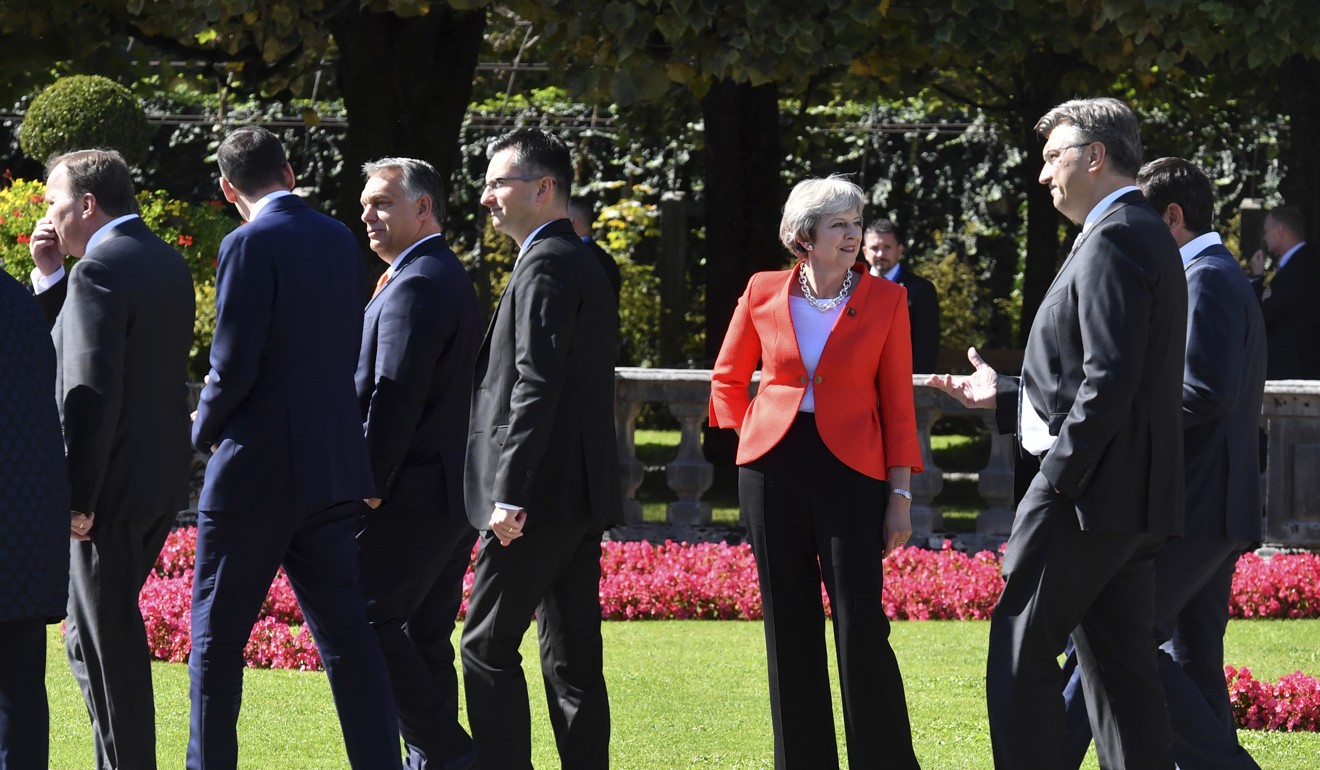
May hit back on Friday, saying the EU’s refusal to compromise was “not acceptable” and reiterating the possibility of walking away from the negotiations.
In a televised statement from Downing Street, May said the talks were at an “impasse” and put the blame on Brussels.
“Throughout this process, I have treated the EU with nothing but respect. The UK expects the same. A good relationship at the end of this process depends on it,” the prime minister said. “So we now need to hear from the EU what the real issues are and what their alternative is so that we can discuss them. Until we do, we cannot make progress. In the meantime, we must and will continue the work of preparing ourselves for no deal.”
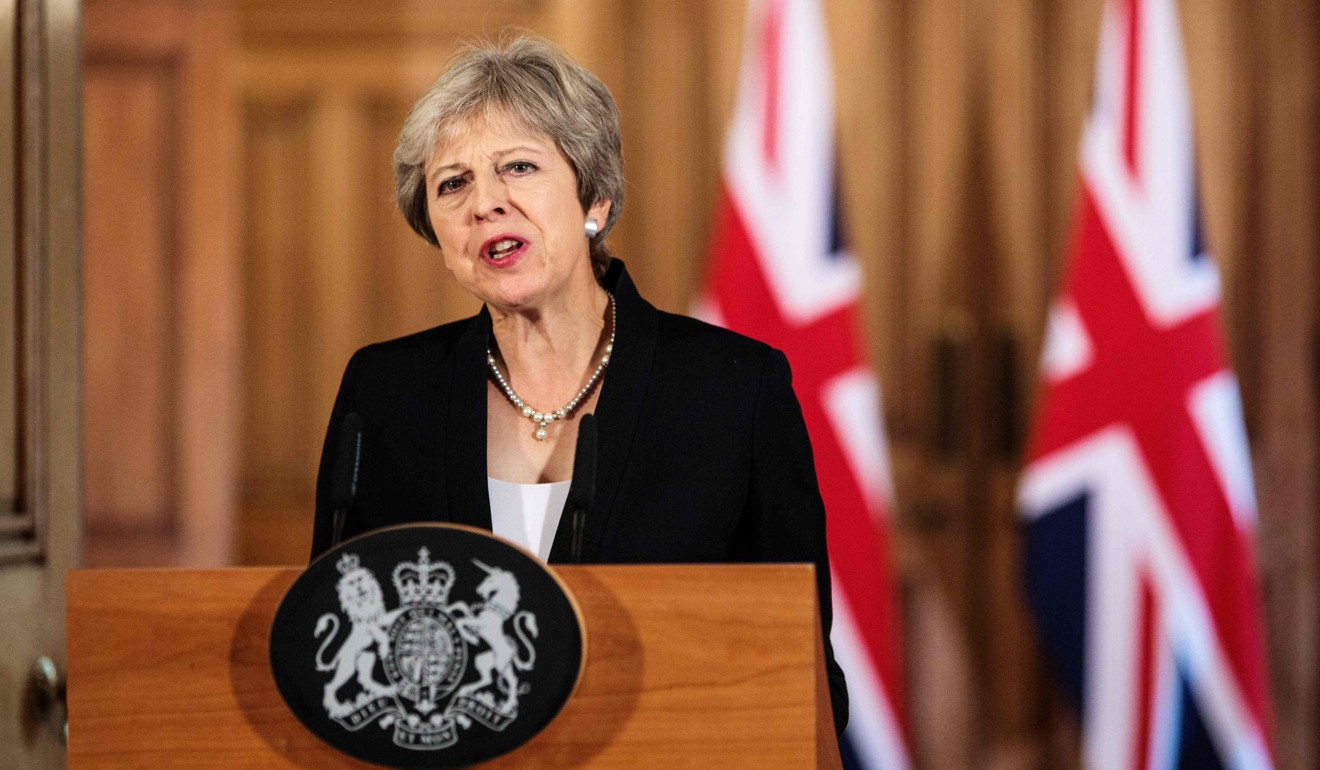
May said the EU’s proposal for Britain to stay in the European Economic Area, effectively the single market without any say in the rules, would “make a mockery” of the 2016 vote to leave.
Britain is due to leave the EU next year, yet little is clear: there is, so far, no divorce deal, rivals to May are circling and some rebels have vowed to vote against a possible Brexit deal.
The Spectator used the headline: “Chequers goes pop: Theresa May’s Salzburg catastrophe.”
“May will emerge as unique in the annals of history if she survives as PM much longer in the face of setbacks on this scale,” British journalist Robert Peston wrote.
May’s former Brexit minister David Davis has said up to 40 lawmakers from the Conservative Party will vote against her Brexit plans.
Video game depicts post-Brexit Britain as a grim and xenophobic dystopia
Davis told Huffington Post there was a “rock-solid” core of party lawmakers who belonged to the European Research Group (ERG), a grouping which wants a sharper break with the EU and were willing to vote down her plans.
If a possible deal were rejected by the British parliament, Britain would face leaving the EU without an agreement, delaying Brexit or calling another referendum.
“If all conventional roads lead to a hard no-deal Brexit, the notion of parliament exerting control and forcing another referendum on us would begin to look not wholly fanciful,” Peston wrote in The Spectator.
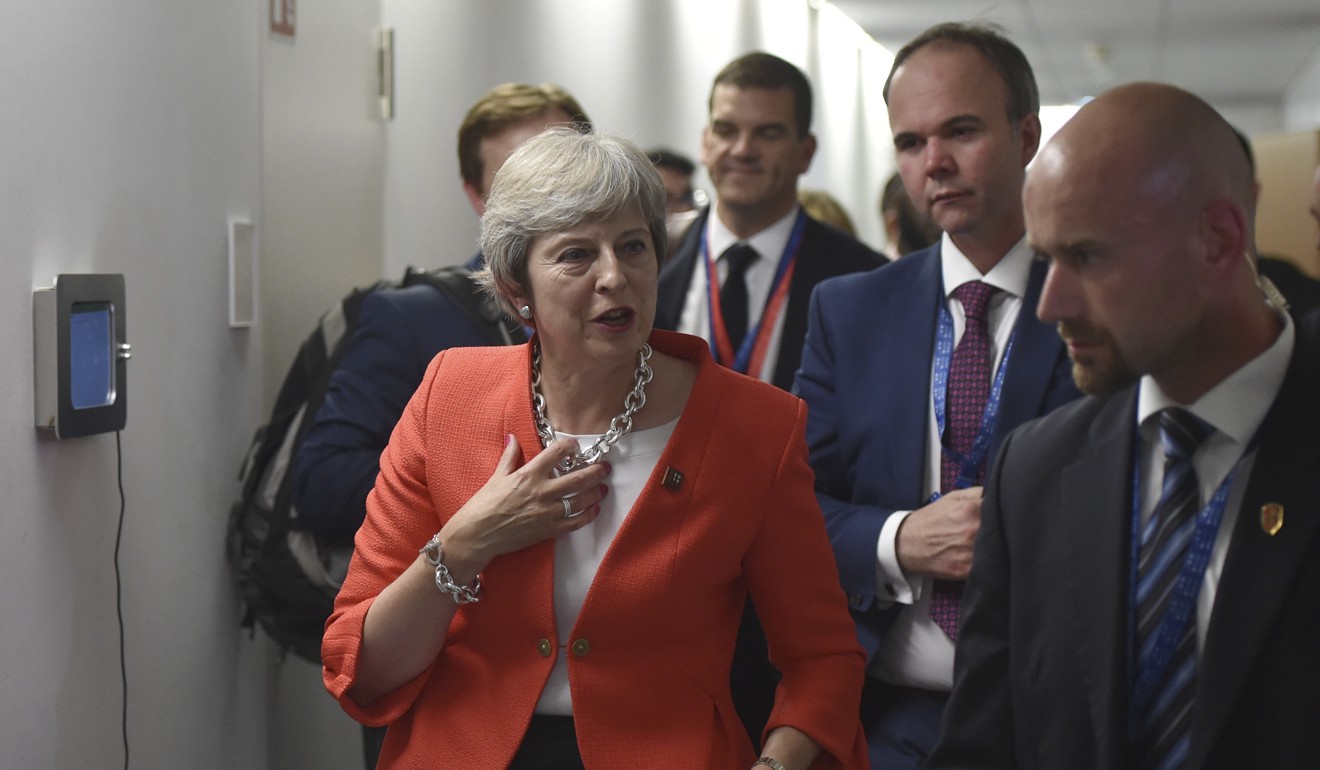
If it left without a deal, the country would move from seamless trade with the EU to customs arrangements set by the World Trade Organisation for external states.
Many business chiefs and investors say a “no-deal” Brexit would weaken the West, panic financial markets and block the arteries of trade. Brexit supporters say such fears are exaggerated and Britain would thrive in the long term.
Additional reporting by Agence France-Presse

